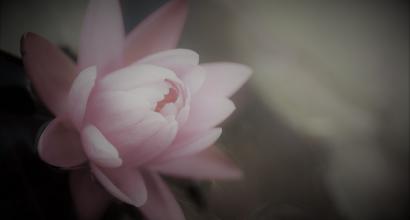There are several tiers of instruction in the Bhagavad-gītā from the level of "patraṃ puṣpaṃ phalaṃ toyam" (offering a leaf, flower, fruit or water) to the level of nistraiguṇya (being beyond the three qualities). Not all of us can follow these teachings at all times. It is like a library wherein we select what we need. Though there are hundreds of lessons, it is up to us to choose what fits us. One’s itch cannot be relieved by another person. Only the experiencer knows what and where the itch is.
We have to find our respective actions and dharma by ourselves. The objective of karma is cleansing pāpa (sin/effect of evil actions). One should not inquire after its fruits. The fruit is to prepare one’s mind. What comes from doing good work? What accrues from serving one’s parents or loving one’s children? The resultant happiness is its fruit. Karma (action) is dependent on the individual; the results on Providence. Where is our excellence then? It lies in not incurring results - good or evil - even after performing one’s duty. For this to happen, one must be indifferent towards the results. That is yoga and the purport of the statement “yogaḥ karmasu kauśalam." The jñānī (the enlightened one) does not think that he is performing good acts. Good naturally flows from him. Only fragrance emanates from a ball of musk. What is good or bad there? Is it possible to spoil it?
The Self is Non-attached
The jñānī is beyond duals. He is of one form of undivided goodness. Results accrue from actions which in turn happen because of a restriction of Nature or a prescription of dharma. The jñānī reckons thus - “What had to be done has been done. Its fruits will occur accordingly. What if they are sweet? Or bitter? My palate is ready for both”. Those are regarded as “buddhi-yukta” (endowed with wisdom); those who have seen reality in its entirety; those for whom there is no effort of anxiety or curiosity towards good and evil.
buddhi-yukto jahātīha ubhe sukṛta-duṣkṛte |
tasmād-yogāya yujyasva yogaḥ karmasu kauśalam || (BG 2.50)
The Self is Actioness
Natural instinct and one’s former deeds impel one to perform activity. As long as one feels that he is performing an action and that the results of the said action are his and feels bound to the work, the fruits of activity exist for an individual. If one is of the strong resolve that one’s life is because of the results of former deeds (prārabdha-karma) and that one’s Self is actionless and pure and any activity that will be done will be done solely for dharma and not for its fruit, the noose of karma will not bind him.
...nāyaṃ hanti na hanyate |
...kaṃ ghātayati hanti kam || (BG 2.19)“The Self does not kill; Nor is It killed. Whom does It maim or kill?”
The Self does not do anything. Whatever is done is by the modifications of the mind and intellect. These changes are impelled by Nature or by the past of the individual. Man’s intellect can establish limits for these. Man’s golden opportunity is in the independence of discernment.
“Did I not say that all works comprise the three qualities of sattva, rajas and tamas? These activities could conform to dharma or not. Any activity done without touching these three qualities will not bind you and cause Universal welfare”
traiguṇya-viṣayā vedā nistraiguṇyo bhavārjuna ॥ (BG 2.45)
The actions prescribed by the Vedas yield results or fruits. Those desirous of heaven and other rewards perform these works. You perform the same without any desire. Then it becomes “adhi-dharma” (performing dhārmic works even when beyond the dual of dharma and adharma). There are several who might purify their jīva through desireful actions. Others are beyond the prescriptions and proscriptions of śruti and smṛti. Be like those who go beyond the three guṇas. If that is not possible, follow the regular path of the rest and attain the Supreme Goal.
“Arjuna, the need for instruction will cease when your mind goes beyond agitations of infatuation. Which means that the purpose of any instruction is to remove mental confusion and desires. Uttered words are of various kinds. They stir and scatter the mind. If you are not swayed by these words and stay firm, being of one resolve - you will not touched by puṇya and pāpa. It will be possible for you to uncover the secret of Art of Yogic Living: “yogaḥ karmasu kauśalam."
samādhāvacalā buddhiḥ tadā yogam-avāpsyasi ॥ (BG 2.53)
Samādhi is contemplation: keeping the mind equanimous and focusing on the object of meditation. In other words, it is the unwavering mind established in one-pointed concentration.
To be continued...
The present series is a modern English translation of DVG’s Kendra Sahitya Akademi Award-winning work, Bhagavad-gītā-tātparya or Jīvana-dharma-yoga. The translators wish to express their thanks to Śatāvadhāni R Ganesh for his valuable feedback and to Hari Ravikumar for his astute edits.

















































